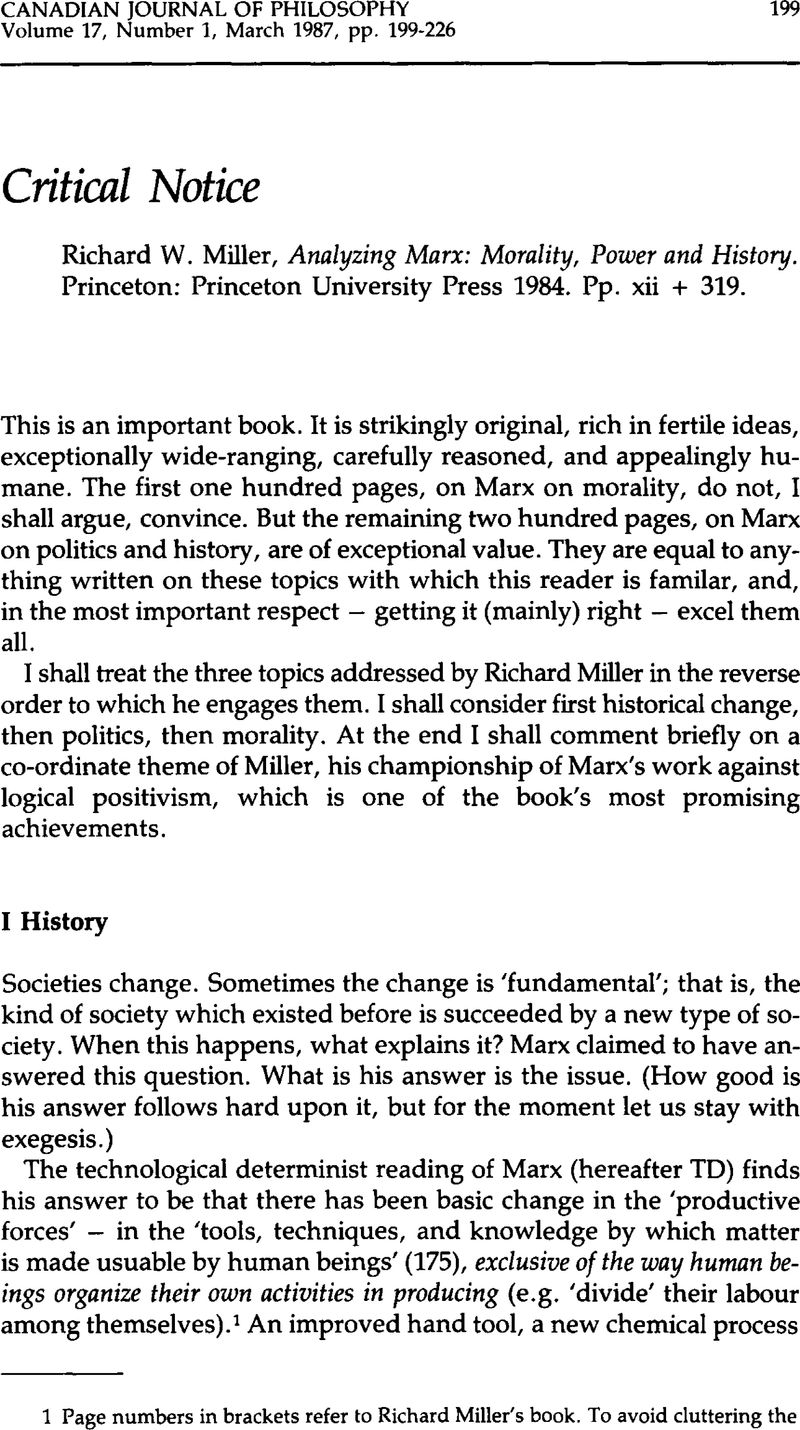No CrossRef data available.
Article contents
Richard W. Miller, Analyzing Marx: Morality, Power and History, Princeton: Princeton University Press 1984. Pp. xii + 319.
Review products
Published online by Cambridge University Press: 01 January 2020
Abstract

- Type
- Critical Notice
- Information
- Copyright
- Copyright © The Authors 1987
References
1 Page numbers in brackets refer to Richard Miller's book. To avoid cluttering the discussion with footnotes, quotations from Marx will also be identified briefly in the body of the essay.
2 Princeton: Princeton University Press 1978
3 See especially Chapters XIII and XIV.
4 Cohen, 162
5 Labour-power is the capacity to labour; labour is the exercise of that capacity.
6 If this is not the case, I should be grateful for the instruction, being at work since 1983 on a project whose object is to throw light on the matter.
7 Quoted in Noam Chomsky's recent searing indictment, Turning the Tide: U.S. Intervention in Central America and The Struggle For Peace (Montreal: Black Rose Books/Boston:Southend Press 1985) 94-5.
8 The resource constraint is the constraint upon action imposed by lack of sufficient resources (e.g. money); the demand constraint is the constraint upon what projects or demands are rational to pursue imposed by the existing distribution of power and opportunity. See Joshua Cohen and Joel Rogers, On Democracy (New York: Penguin 1983), Chapter Three.
9 I am grateful to Richard Miller for clarifying this to me in a letter.
10 Quoted in Williams, Raymond Culture and Society 1780-1950 (London: Chatto & Windus 1967) 180Google Scholar.
11 Freire, Paulo Pedagogy of the Oppressed (New York: Seabury Press 1970) 29–31Google Scholar
12 Beehler, Rodger Moral Life (Oxford: Basil Blackwell 1978Google Scholar); and ‘Moral Delusion,’ Philosophy 56 (1981), 313-31
13 Wood, Allen ‘Marx on Right and Justice,’ Philosophy and Public Affairs 9 (1979), 272Google Scholar
14 See The German Ideology, ed. Arthur, C.J. (New York: Lawrence & Wishart 1970) 114–15.Google Scholar
15 Fact and Method: Explanation and Confirmation in the Social and Natural Sciences
16 For writings relevant to this issue see Paulo Freire’s Pedagogy of the Oppressed, cited at note 8; Horsburgh, H.J.N. Non-violence and Aggression (Oxford: Oxford University Press 1968Google Scholar); the discussion by Horsburgh in Inquiry of work by Gene Sharp, Ted Honderich, and Kai Nielsen on this issue; and Joshua Cohen's and Joel Roger's On Democracy, cited at note 7. The remark by Marx occurs in Chapter XXVII of Capital, Volume One.


